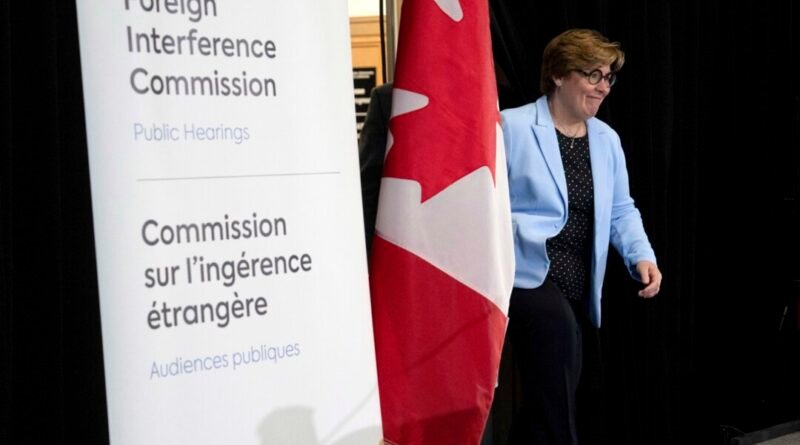Leaders of the Liberal and Conservative Parties Address Nomination Loophole Concerns During Inquiry
Executives from the Liberal and Tory parties testified before the Foreign Interference Commission on September 20, affirming that their current party rules and procedures protect against interference by foreign entities.
The Conservative Party allows individuals aged 14 and up who are citizens or permanent residents to purchase a membership, while the Liberal Party permits anyone who resides in Canada, regardless of citizenship or residency status, to become a member free of charge.
During the inquiry, Azam Ishmael from the Liberal Party and Mike Crase from the Conservative Party defended their organizations’ practices in response to concerns raised by intelligence reports.
The government-mandated Security and Intelligence Threats to Elections (SITE) Task Force presented a redacted document at the commission stating that foreign states exploit loopholes in party nominations to interfere in democratic processes. According to the report, foreign actors may pay for individuals’ party memberships to influence nomination races in “safe seats.”
Both Ishmael and Crase maintained that their nomination processes have not been targeted for foreign interference, with Crase emphasizing the controls in place to safeguard the integrity of the Conservative Party’s procedures. Ishmael argued against imposing stringent citizenship requirements for voting in nomination races, citing practical concerns.
In response to the threat of foreign interference, the Liberal government introduced Bill C-70, which criminalizes interference with nomination processes. The Commission is currently examining the government’s capacity to counter foreign meddling, with a focus on previous instances of interference, such as the 2019 Liberal nomination race in Don Valley North where concerns of PRC involvement were raised.
While intelligence reports suggested irregularities in the DVN nomination process, neither party indicated significant changes to their nomination rules. Ishmael denied knowledge of CSIS’s conclusion that the PRC impacted Han Dong’s nomination, while Crase asserted ignorance of allegations regarding his party’s leadership races.
Overall, the executives emphasized the robustness of their party processes in addressing potential foreign interference and maintained their commitment to safeguarding democratic practices.
Source link



